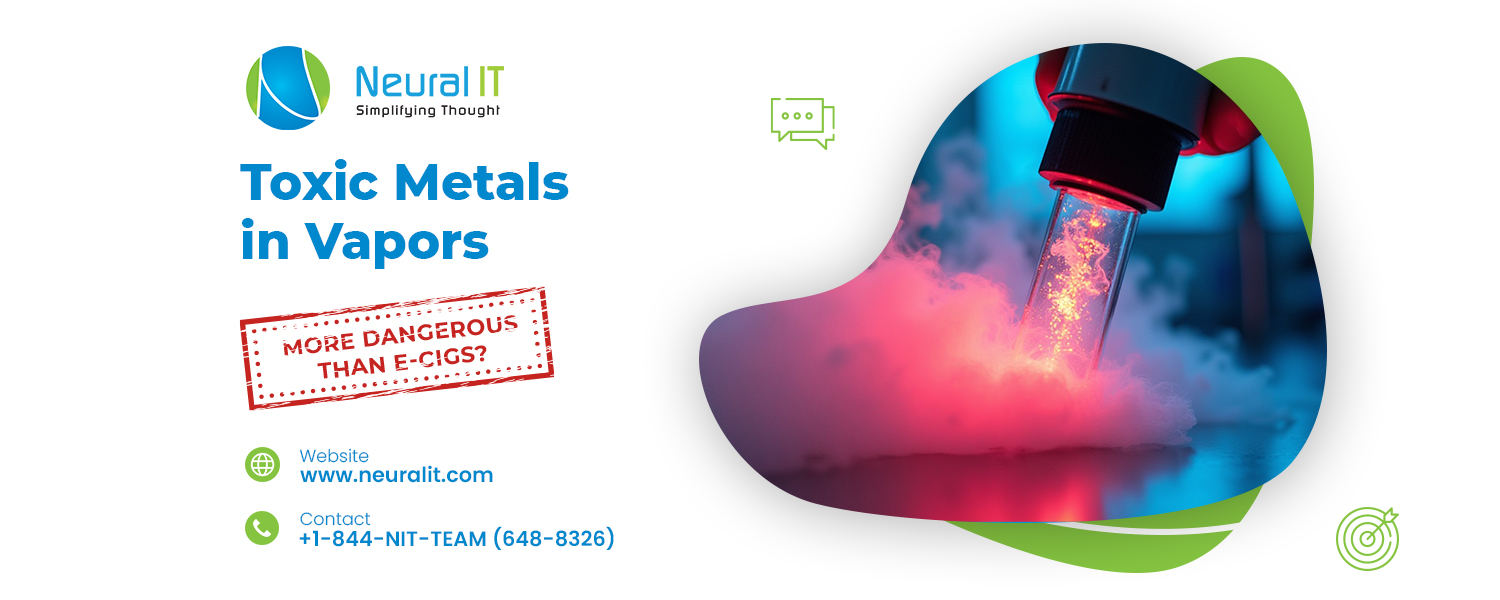Study Finds Toxic Metals in E-Cigs and U-Cigs Vapors
Study Finds Toxic Metals in E-Cigs and U-Cigs Vapors

Introduction
As health concerns about e-cigarette use escalate, emerging research suggests that a newer class of vaping products—ultrasonic cigarettes or u-cigarettes—may pose even greater risks.
A study published in Environmental Health Perspectives in April highlights that some u-cigarette vapors contain significantly elevated levels of harmful heavy metals such as arsenic and selenium.
What Sets U-Cigarettes Apart
Both e-cigarettes and u-cigarettes are marketed as alternatives to traditional smoking, delivering nicotine through inhaled vapor. However, they differ in technology: e-cigarettes use heating coils to vaporize the liquid, while u-cigarettes rely on high-frequency ultrasonic vibrations. Some proponents argue that the lack of heat in u-cigarettes could make them safer, but recent evidence challenges that assumption.
Toxic Heavy Metals Found in Vapors
Exposure to heavy metals like arsenic and selenium has long been associated with serious health issues, including neurological disorders and multiple forms of cancer. Similar concerns have fueled lawsuits over children ingesting heavy metals in food. The new study from the University of California, Riverside, analyzed u-cigarettes, e-cigarettes, and other pod-style vaporizers for toxic element content.
Comprehensive Chemical Analysis
Researchers used advanced techniques, including a scanning electron microscope and energy-dispersive X-ray spectrometry, to evaluate chemical and metal levels in various devices. Brands tested included SURGE (a popular u-cigarette), JUUL (a well-known e-cigarette), and others. Sixteen different elements were identified in at least one sample, whether in liquid or aerosol form.
U-Cigarettes Show Higher Contamination
Overall, u-cigarettes—especially the SURGE brand—contained more elements and at higher concentrations than newer, fourth-generation e-cigarettes. The presence of certain elements even increased in the liquid after vaping. For instance, silicon was consistently found in both fluids and aerosols across all tested brands.
Nickel, another toxic element, was detected in every fluid sample. The KWIT Stick brand showed the highest concentration, reaching up to 66,050 micrograms per milliliter. However, nickel's transfer from fluid to aerosol was relatively inefficient.
SURGE Products Raise Red Flags
Unique to SURGE fluids were elevated levels of copper and zinc—elements minimally present in their aerosols. Of greater concern was the presence of arsenic and selenium at higher levels in SURGE products. Both elements are included in the FDA's list of “harmful and potentially harmful constituents.” Researchers suspect these metals may stem from substandard manufacturing solvents or the heating components used in ultrasonic devices.
Health Risks and Expert Warnings
“This is the first study to our knowledge showing that u-cigarettes can contain equal or higher concentrations of metals compared to traditional e-cigarettes,” said the study’s lead researcher. The data suggests that long-term use of u-cigarettes may result in heightened health risks, including cancer and neurotoxicity.
Regulatory Action and Declining Teen Use
Vaping, especially among teens, continues to be a major public health concern in the U.S. In a move applauded by health advocates, the U.S. Supreme Court recently upheld federal restrictions on flavored vaping products.
According to research, these regulations have already led to a 3.6% decline in daily vaping among young adults.
Meanwhile, agencies like the FDA and CDC remain focused on tightening regulations. Their efforts appear to be yielding results: teen vaping rates dropped to a decade-low in late 2023, according to the CDC.




